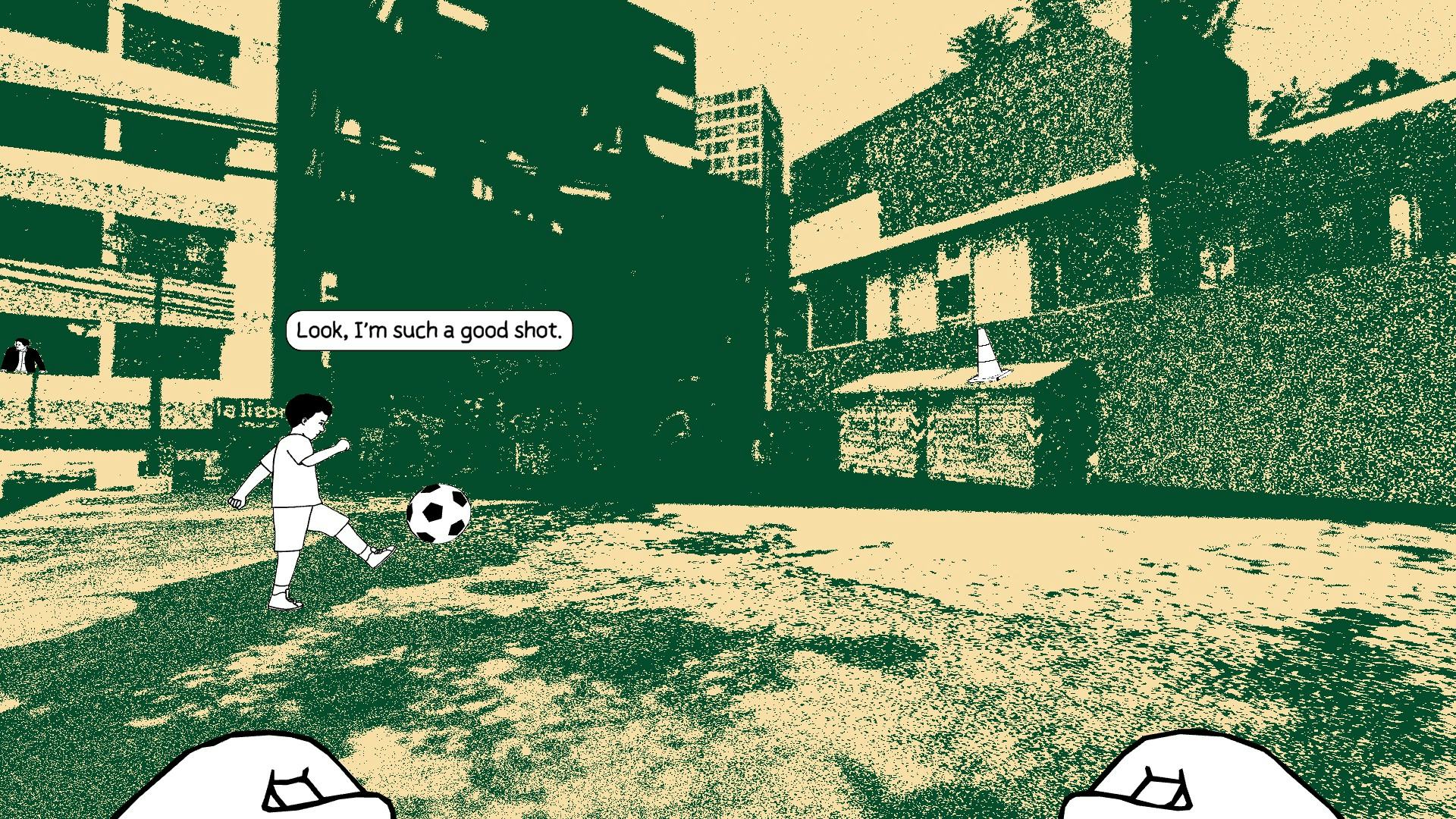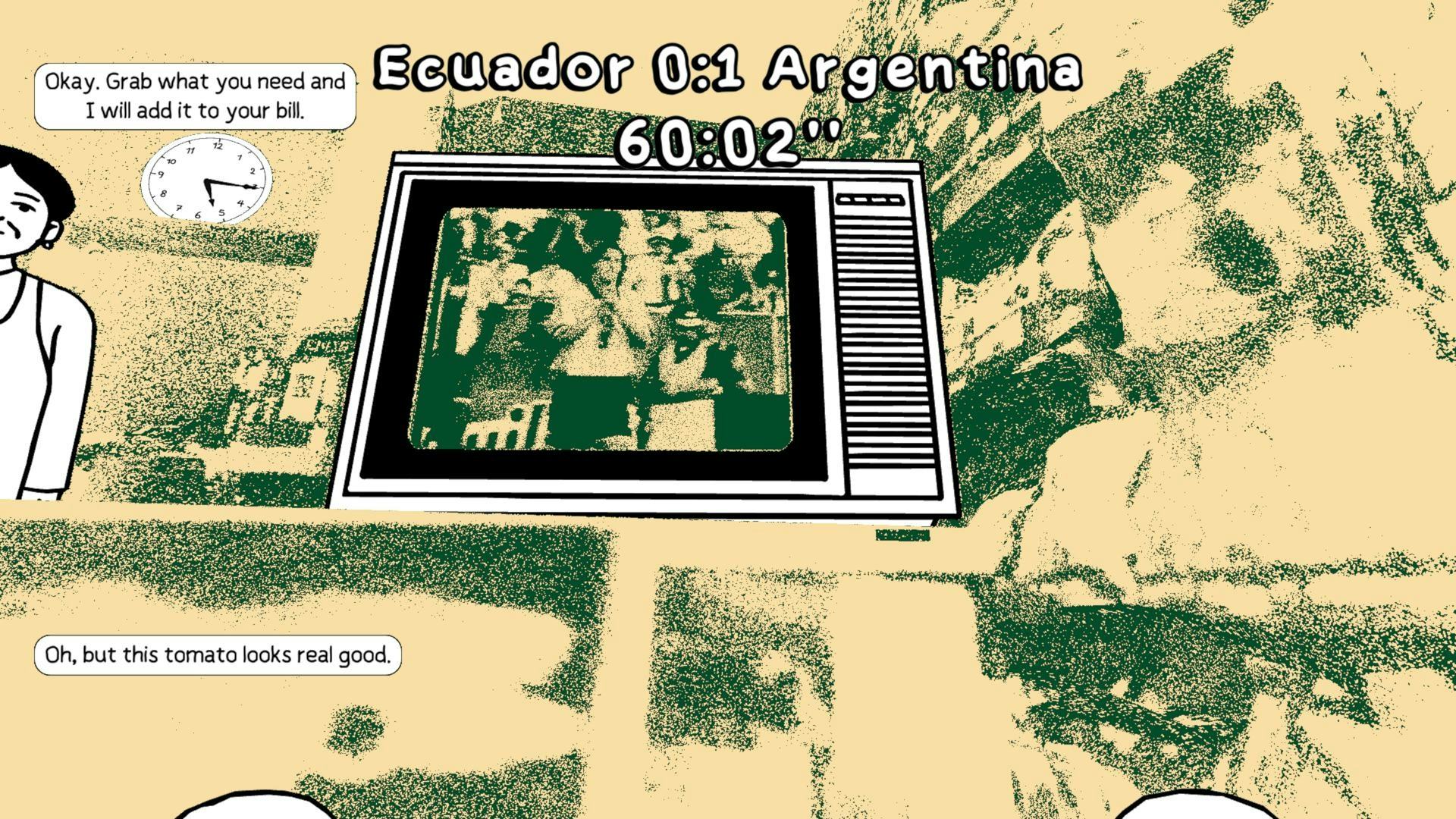
Our memories shape our lives, hounding our thoughts with regrets or feelings of ecstasy for years on end. Despelote is a game about soccer, but also about memory. It’s a charming slice-of-life adventure set in Quito, Ecuador, an emotional autobiography, and a shockingly honest look at game development. It’s one of the year's most important and resonant games, and you can finish it in an afternoon.
Despelote’s eight-year-old Julian is obsessed with soccer. He plays FIFA on the family’s shared television every chance he gets, disobeys his mother’s orders so he can play soccer outside with his friends, and gets distracted by matches on TV while he’s out and about.
That level of obsession is relatable to many. When I was a kid, I was obsessed with Pokémon. I’d take my Game Boy with me everywhere, and bought a Pokémon Tamagotchi to keep me company at school. My mom would make me sit outside and forego video games when she did yard work, so I’d draw my own Pokémon inspired by everything I could see in the yard. I invented a watering can Pokémon, a garden hose Pokémon, and a real monstrosity based on the trampoline.
I can remember all of my childhood Pokémon designs with perfect clarity. What I can’t remember very well is all the times my parents fought. We tend to paint over the painful parts of our lives, even when they’re important to who we are, and that’s what Despelote is really about.
As Julian, you play through vignettes involving his family, friends, and the inhabitants of Quito. The city is absolutely buzzing because Ecuador has qualified for the 2002 World Cup, the first in the nation’s history. It’s a huge point of national pride, and what you hear about everywhere you go. Naturally, the soccer-obsessed Julian is thrilled.

But cracks cut through the clamor of this historical achievement. The country is undergoing terrible political and economic upheaval that’s straining everyone, including Julian’s family. Protests hit the streets, and you can hear the adults talking in hushed whispers as you kick the ball around.
That’s a lot for a kid to process, especially when they just want to have fun, and coupling the mundane with the extreme is the brilliance of Despelote. The game makes us question how our memories work, but it also has an important message about how hope can still be found in the direst of circumstances, and how shared cultural experiences can unite us. I may not have been soccer crazy as a kid, but I can understand Julian’s obsession and identify with how it can function as an escape. It’s a universal message filtered through the real life of one of the game’s creators, Julián Cordero.
Without spoiling an ending that you absolutely need to see for yourself, the final few minutes wrap up Despelote’s entire message in a compelling way. The game stops being a piece of media you interact with and becomes a dialogue between Julian and the player that reveals some of the frustrations of video game development.

Despite Julian remembering the 2002 World Cup with complete clarity, for example, the development team had an almost impossible time finding actual footage of Ecuador’s historic moment. A single video clip of the goal that sealed Ecuador’s qualification has an ad playing over it. That’s the only record of a moment that affected an entire country, and while that ruins the feel-good moment, it also provides a harrowing and vital message about how societies remember things.
Only a video game could achieve something like this, and that’s why games like Despelote are important. It’s an interactive experience that puts you in someone else’s shoes, then masterfully subverts your expectations. It’s a testament to how impressive it is that I haven’t even talked about how fun it is to play, but it sure feels good to crank back the right stick and boot a ball.
Despelote is a perfect little blend of fun and function, an ode to how games and entertainment mold our lives, and a testament to the importance of sharing those experiences with others. You should go share in the experience too.







